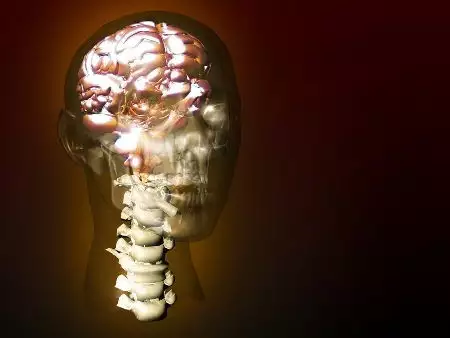Infections taking place in the brain not only produce a wide spectrum of neurological symptoms, but also psychiatric ones.
They can be divided into: bacterial, viral, fungal, chronic viral, nervous system syphilis and invasive diseases.
Purulent encephalitis
Purulent encephalitis accounts for up to 90% of all bacterial infections of the central nervous system. Activation of the infection usually occurs in immunocompromised patients.
The most common causes include:
- suppurative otitis media,
- tooth-periapical abscess,
- periungual abscess,
- inflammatory foci in the lungs,
- sinusitis.
Infection manifests as headaches, vomiting and meningeal symptoms. In addition, disturbances of consciousness, psychomotor agitation, seizures, speech problems and cranial nerve palsy may occur.
In order to make a diagnosis, an examination of the cerebrospinal fluid should be carried out. During infection, its parameters change and bacteria and large amounts of protein are present.

photo: ojoimages
Promptly implemented appropriate antibiotic treatment gives an 80% chance of a complete cure. However, sometimes neurological symptoms persist after infection, such as paresis, spastic paralysis, epilepsy or hearing impairment. In addition to neurological complications, psychiatric complications may also occur, the most common being personality disorders and cognitive impairment, i.e. dementia.
Viral meningitis and encephalitis
Viral infection is divided into exogenous and ednodogenic:
Anendogenous infection is one in which the disease has occurred as a result of the activation of the chronic presence of a virus, latent within the nervous system. The triggering factor is usually immunocompromised and the pathogens are herpes or cytomegalovirus.
The disease begins with neurological and psychiatric symptoms, mainly manic states, psychosis with disturbances of consciousness, hallucinations and paranoid psychosis.









